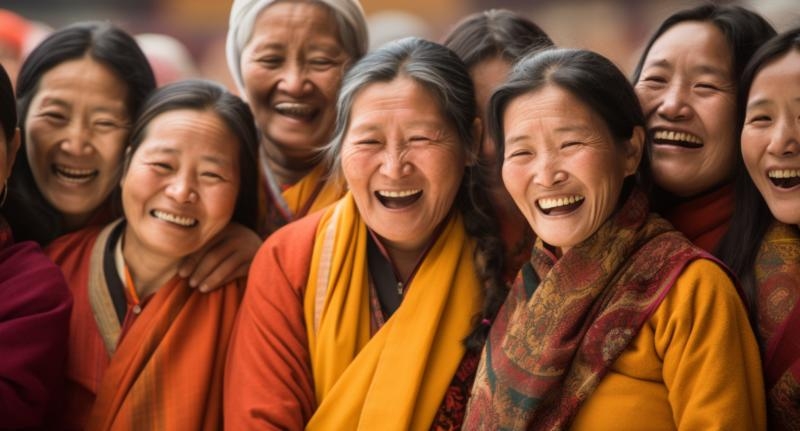Bhutan: Journey to the Happiest Place on Earth

A Glimpse of HappinessWhat if I told you that happiness isn’t just a fleeting emotion experienced after a great meal or finding a twenty on the sidewalk? In Bhutan, happiness is the national currency, and it’s traded in generous amounts. This tiny kingdom, nestled in the folds of the Himalayas, has made it its mission to measure prosperity not by gross domestic product but by gross national happiness. That’s right—while the rest of the world is obsessing over financial markets, Bhutan is counting smiles. If only it was as easy to quantify laughter as it is to measure GDP!The Evolution of HappinessThe concept of Gross National Happiness (GNH) was introduced in the 1970s by the Fourth King of Bhutan, Jigme Singye Wangchuck. The king believed that real development should take a holistic approach that prioritizes the well-being of its citizens over mere economic growth. If only other leaders could be so... well, enlightened. GNH is based on four pillars: sustainable development, cultural preservation, environmental conservation, and good governance. Sounds simple, right? If we could bottle this approach, it would be a bestseller in no time.Life in Bhutan: A Blend of Old and NewWhile Bhutan is known for its stunning landscapes and ancient monasteries, life here is a curious mix of the old and the new. Picture this: young monks, dressed in their crimson robes, scrolling through smartphones, trying to find the best filtered photo of the Paro Taktsang (Tiger’s Nest). Yes, even spirituality sometimes gets a little souped up with technology. The kingdom is slowly modernizing, but its core values remain rooted in tradition. It’s like mixing a vintage wine with a fizzy soda—surprising yet refreshingly delightful.- Festivals that make every celebration feel like a royal gala.
- A penchant for archery competitions where everyone’s a sharpshooter.
- Monks who are as likely to give you wisdom as they are to recommend a good place for momos.
Nature’s PlaygroundFor nature lovers, Bhutan is like a candy store where every aisle is a postcard view. The country is home to some of the highest peaks in the world, pristine forests, and diverse wildlife. Here, you can hike to a monastery perched on a cliff, drink a cup of butter tea as you gaze at the breathtaking scenery, or have a chance encounter with a takin—yes, I’m talking about an actual animal, not just the name of your favorite local café. The takin is a unique species that looks like a cross between a cow and a goat, just to keep things interesting.Food for HappinessSpeaking of local cafés, Bhutanese cuisine is a joyous affair that invites you to explore new flavors. Ema Datshi—a sublime blend of chili and cheese—could convert even the staunchest cheese-hater into a fan. And if you think you can handle the heat, well, you might just find yourself sweating like a snowman in July. Food is not merely sustenance here; it’s an expression of culture, and every meal is a celebration of community.- Red rice that’s fresher than your Tinder matches.
- And let’s not forget the ubiquitous chili cheese, possibly Bhutan's national sport.
- Sweet treats that could ruin any diet plan, but who’s counting calories in paradise?
The Art of MindfulnessIn Bhutan, mindfulness isn't just a trend; it’s a way of life. The Bhutanese practice meditation not just to clear their minds but to keep their happiness levels soaring like a kite on a windy day. The local saying goes, “When your mind is at peace, happiness will find you.” It’s almost as if they have a dedicated happiness GPS that recalibrates every time you feel a twinge of stress. Final Thoughts on HappinessAt the end of the day, Bhutan teaches us that happiness doesn’t require a hefty bank balance or lavish lifestyles; it thrives in simplicity, connection, and a strong sense of culture. As you venture into this kingdom of joy, you’ll leave with not just a camera full of picturesque landscapes but also a heart full of warmth. Who knew happiness could be the ultimate souvenir? Remember, if you ever find yourself wandering in Bhutan, just look for the nearest smiling face—it’s usually a local, fully aware that the true treasure is the joy shared along the journey.
|
|







